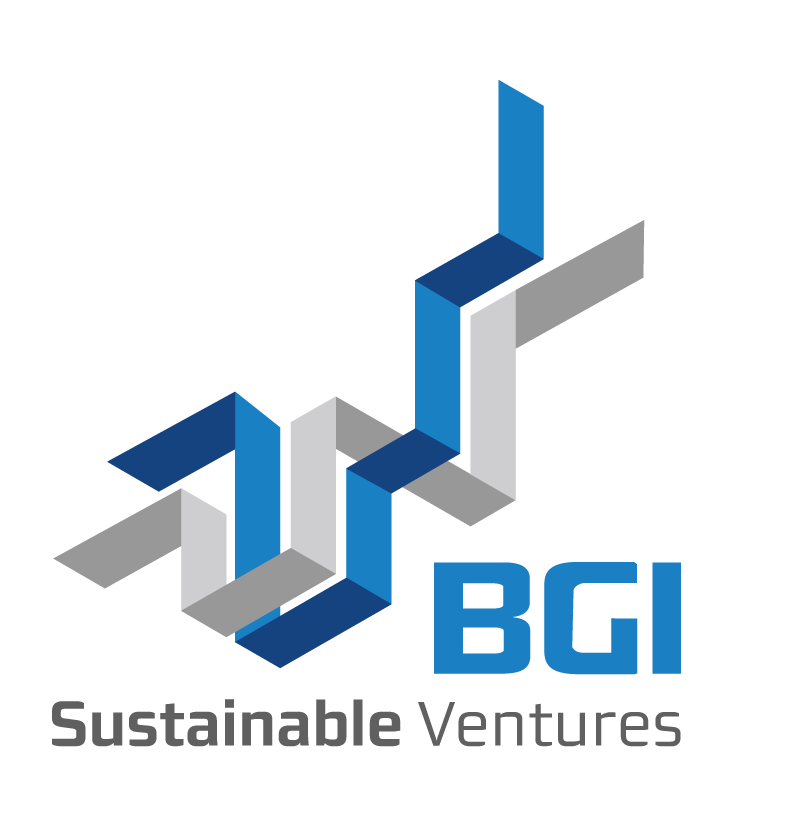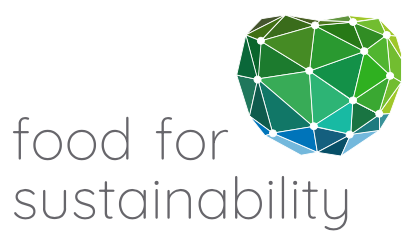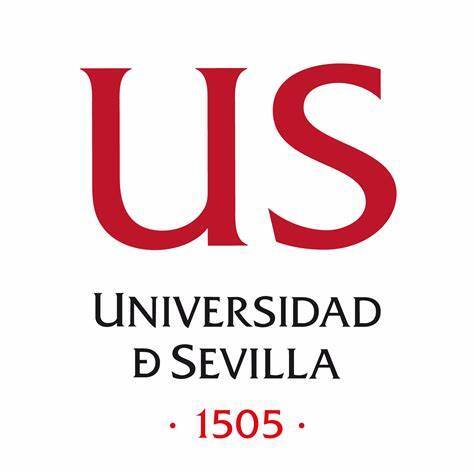RIS Inspire - HealthySoil4Life
Training in entrepreneurship and innovation in Soil Health and Food

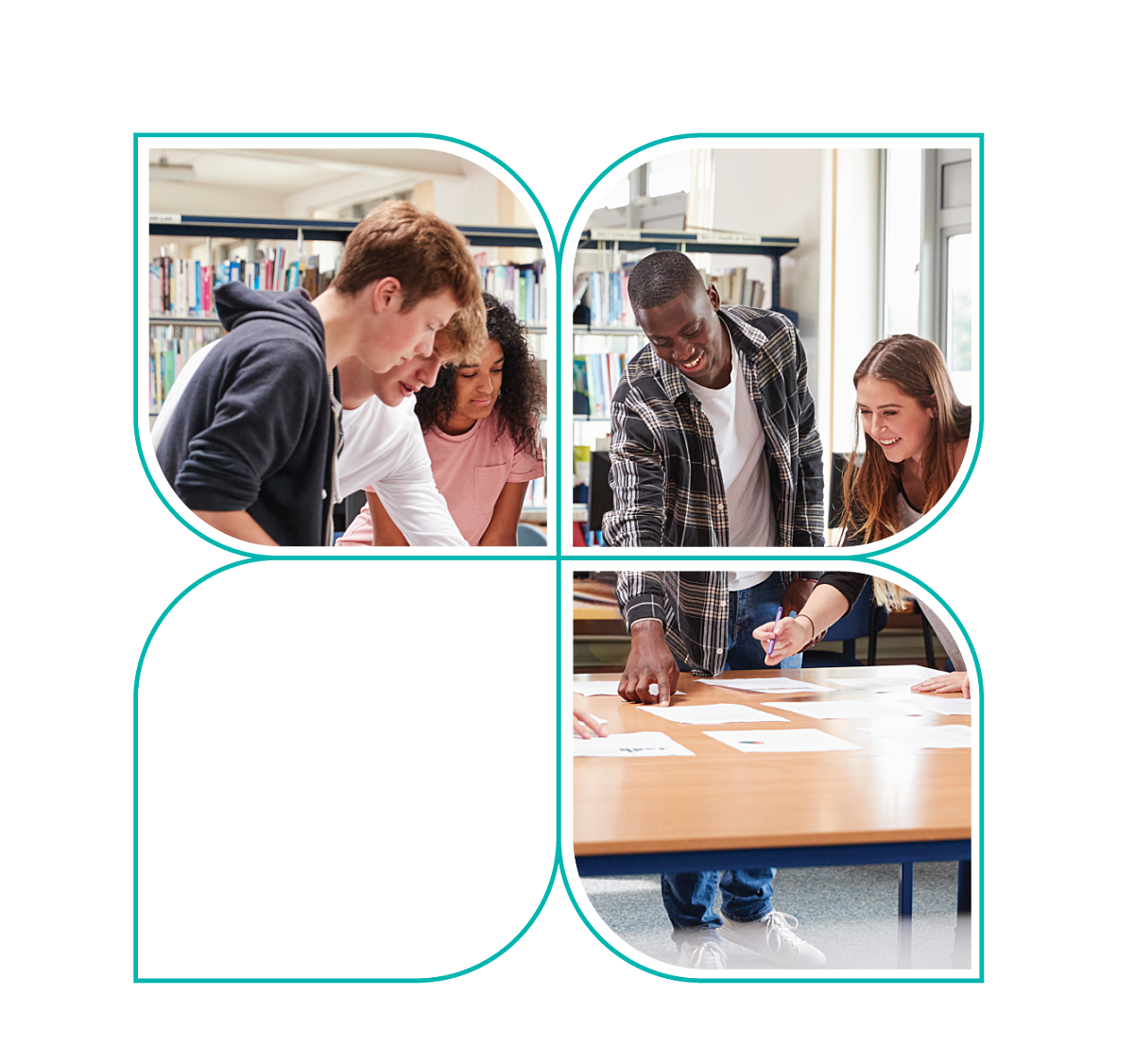
Course information
- Applications
-
Open until the 15th June
- Audience
-
Only participants from RIS countries can apply
- Dates
-
- 1st to 12th July 2024 (online)
- 29th July to 1st August 2024 (presential, invitation only)
- Price
-
50€ for the full course
Waivers may apply
About : Provide knowledge and a strong entrepreneurship background
Over a period of 3 weeks, the programme provides you a dynamic and supportive environment for you to develop your knowledge on soil health, soil microbiology, eco-friendly farming practices towards sustainable and climate farming agriculture while contributing to business creation on food wealth.
Advantages :
Integrating entrepreneurship training with food production innovation will enable you to create solutions to global challenges such as decreasing soil functionality and health. The programme has been developed and will be delivered by an outstanding collaborative group composed of European universities, institutes, food industry companies, farmers, and agri-food startups. This unique programme features teaching by highly skilled mentors in entrepreneurship in the food system from Food4Sustainability (Portugal), BGI (Portugal), Idanha-a-Nova Municipality (Portugal) and Sevilla University (Spain) with contributions from Real Idanha (Portugal), and The Grand Farm (Austria).
Career Opportunities : This programme is for you!
Training in entrepreneurship on Soil Health and sustainable practices for the agrifood sector you can create career opportunities as a university student, early career researcher or as young entrepreneur:
- By completing your plan of studies in agronomy, biology, and related fields.
- Through the creation of start-ups based on the ideas developed during the summer school program
- By boosting your chances of being employed by start-ups, SME´s and bigger companies across the sustainable food system.
- By improving your chances of being employed in local, national, and international activities in administration, teaching, and training.
- By improving your chances of being employed by NGOs and media companies
The training of students on sustainable and smart farming can make a difference for the current and future generations that will have a reference to follow due to this capacitation. The creation of new businesses will provide a reduction in the current sectoral unemployment but also fill a gap of sectoral innovation.
What you'll learn : Taught by academics and food industry experts
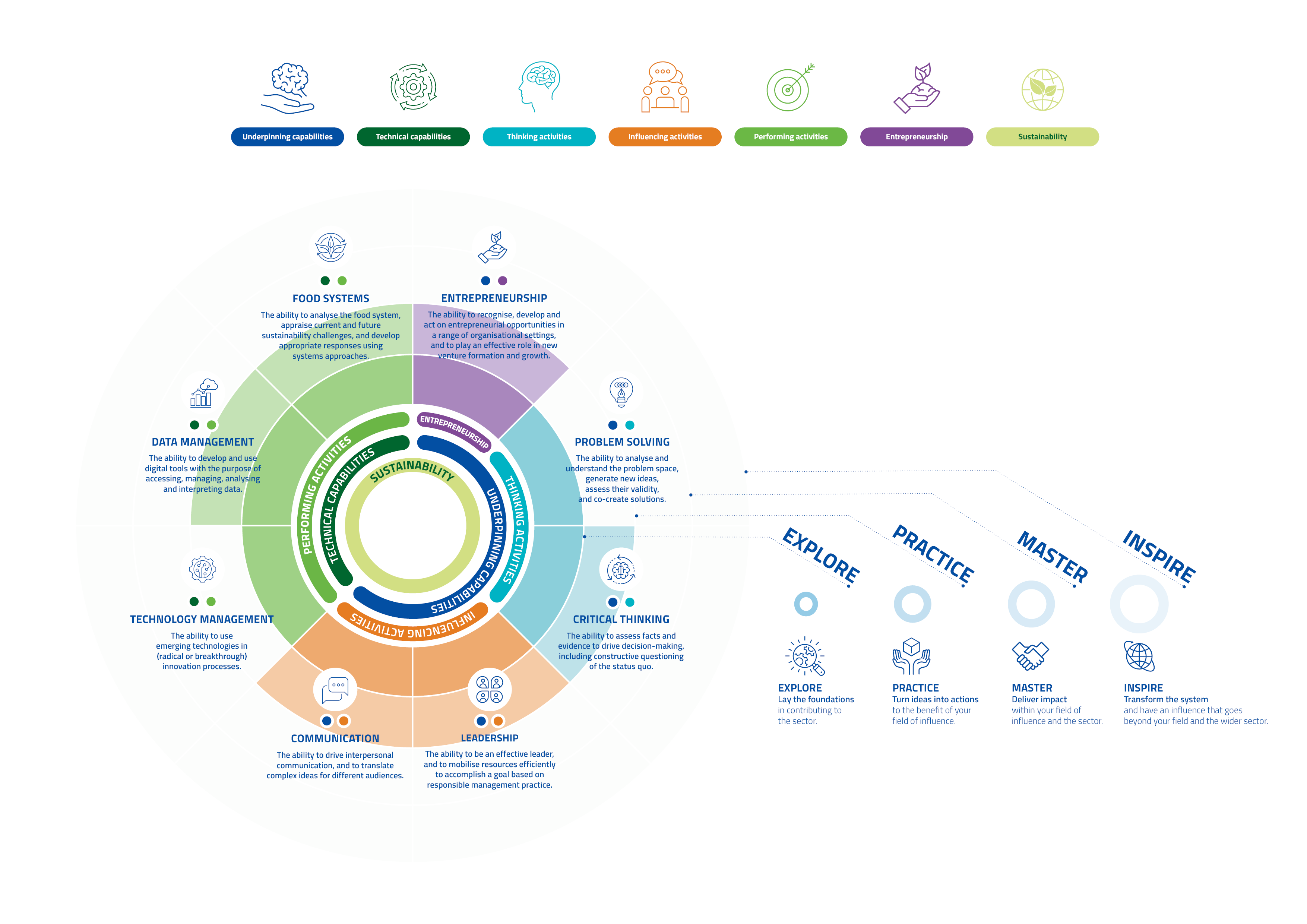
Food systems
Analyse the food system using a range of systems approaches to appraise current and future sustainability challenges.
Implement innovative responses to address sustainability challenges in the food system.
Entrepeneurship
Create opportunities for social and environmental value creation.
Mobilise resources to create sustainable value for others.
Design and implement effective actions to deliver impact.
Problem solving
Analyse relevant aspects of the problem space to inform creative thought.
Use basic methods to generate new ideas and to assess their validity.
Contribute to co-creation processes to develop sustainable solutions.
Critical thinking
Collect, analyse, interpret and report information to develop sustainable solutions to current and future challenges
Appraise unintended consequences of any course of action to devise ethical goals.
Leadership
Appraise different strategies to deliver a food system innovation.
Demonstrate leadership towards the implementation of a food system innovation.
Communication
Devise effective communication methods that support organisational strategies.
Engage in honest and inclusive two-way communication with stakeholders about their concerns.
Adjust messaging for different audiences.
Technology management
Competently use appropriate technologies to contribute to food system innovations.
Appraise the relevance of emerging technologies in a particular work or study context.
Identify key unintended consequences of the use of emerging technologies.
Recognise the importance of IPR management.
Data management
Appraise the efficacy of different digital tools and sensing methods to acquire, manage and manipulate data.
Devise effective data management protocols.
Design effective actions to mitigate key unintended consequences of the use of information technologies.
Implement adequate data security measures.
Structure & Modules : Asynchronous and live (synchronous) interactive virtual sessions
The programme will take place online with a combination of asynchronous and learning resources and live (synchronous) interactive virtual sessions.
Module 1: What is soil health?
Introduction to the challenges in soil health, sustainable agriculture and bio-based fertilizers.
- Importance of Soil in the Global Food System
- Soil formation, functions and threats - the Physical & Chemical properties
- Why is soil a dynamic entity?
- Leveraging soil web biodiversity for sustainable agriculture
- What are nematodes and what can they do for sustainable agriculture
- The role of microbes in nutrient cycling, plant growth and food production
- Micorrhizal - Unlocking the secret ingredient: arbuscular mycorrhizal fungi management for tomato, maize, and vine farming success
- Rizobium – what can they do for carbon and nitrogen cycles?
- NextGen of bio-based enhancers:
- PGPB (plant growth promoting bacteria) – From soil health to crop yield: the potential application of biofertilizers
- Bio-control. What is it and how it can be used?
Module 2: The Soil, how to look after it?
- Sustainable soil practices: Farming smarter, not harder: reducing inputs and boosting the farm’s bottom line
- What is it vermicomposting and I can it be of assistance to farmers?
- Climate change and soil conservation
- K-lines
- Desertification
Module 3: Tools to assess soil health?
The state of the art for soil health assessment.
- Soil health assessment: quantitative tools. Conventional and Next generation Sequencing (NGS) and enzymatic analyses
- Soil health assessment: hands on. Microbes know no boundaries: case studies of microbiome diversity across regions
- Soil health assessment: hands on. Startups landscape on soil monitoring
Entrepreneurial learning will be transversal to all school modules. Please see the full agenda for more detailed information.
--/--
Monday 29th July –1st August (By invitation only)
Eco-Week in the village of Penha Garcia (Portugal) in the GeoPark awarded by UNESCO
Introduction of the Entrepreneurial Week; Presentation of case studies and major challenges; Sustainable Business Models, Pitch design and training; On-site visits
Subjects: Microbiome; Biocontrol; Biofertilizers; Mycorrhizae; Soil Health & Nutrition; Applied Cases; Develop your business
Price €50 for the full course (Waivers may apply)
ECTS: ECTS apply. Please contact the program manager for more details
The school ends with a final test. Successful participants will be granted a Certificate of Completion.
However, right after the school ends participants will have the opportunity to join the Inspire Impact competition, continue their learning, earn an additional certificate and compete for cash prizes (up to €4000).
The Inspire Impact course is free of charge for candidates who have satisfactorily completed any Inspire School.
More information about this competition will be shared soon!
Activity Lead :
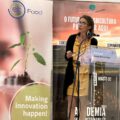
Cláudia Costa
Operations Researcher - Food4Sustainability
claudia.costa@food4sustainability.org Connect on LinkeInPartners : In collaboration with
Related courses
View our full course catalogue

Pathways to Impact for PhDs


InfraBooster Foundation

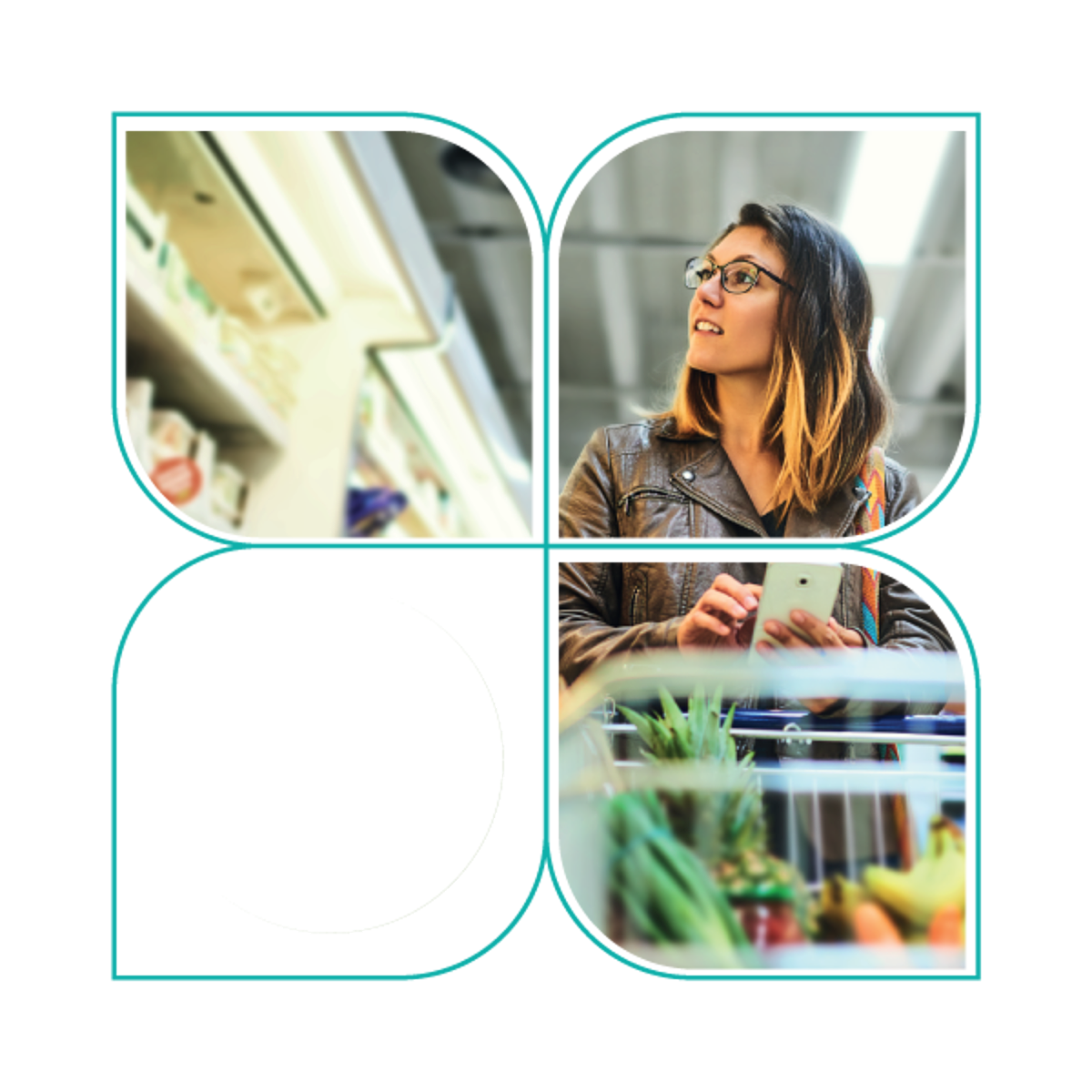
Food Solutions
